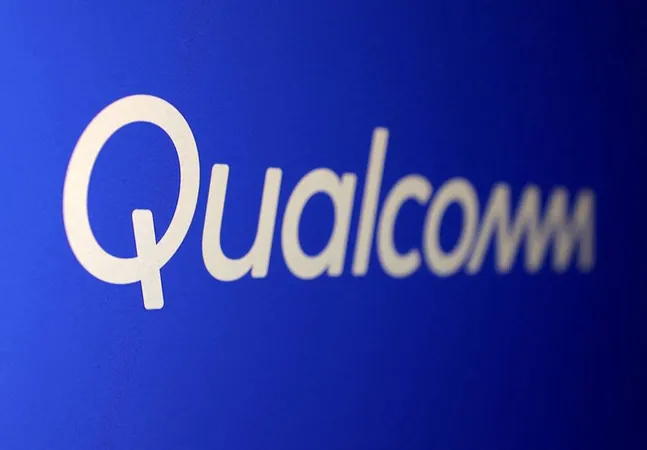
Qualcomm's Intel Buyout Ambitions: A Bold Move or a Risky Gamble?
2024-09-23
Qualcomm's Intel Buyout Ambitions: A Bold Move or a Risky Gamble?
Qualcomm's potential acquisition of Intel has sparked excitement and anxiety across the tech industry. This ambitious maneuver could significantly diversify Qualcomm’s portfolio, but it’s not without its risks and challenges.
Analysts suggest that acquiring Intel would not only burden Qualcomm with Intel’s struggling semiconductor manufacturing arm, which has incurred significant losses, but would also plunge them into fierce antitrust scrutiny worldwide. This deal would be monumental, representing one of the largest in the semiconductor sector and merging two giants poised to cater to smartphone, personal computer, and server markets.
In the wake of rumors surrounding Qualcomm's interest in Intel, shares of Intel saw a nearly 3% bump as market speculation heated up; conversely, Qualcomm’s stock dipped by 1.8%. Bob O'Donnell, founder of TECHnalysis Research, commented, “While the concept of merging Qualcomm and Intel is compelling due to overlapping product lines, the likelihood of it actually going through is slim. It’s improbable that Qualcomm wants the entirety of Intel, particularly with the current complexity of separating its product and foundry businesses.”
Once a titan in the semiconductor realm, Intel is now grappling with one of its toughest periods in recent history. The company's market value has plummeted below $100 billion for the first time in 30 years, attributed largely to a misstep in the AI revolution after shying away from investing in OpenAI. As it stands, Intel’s market capitalization is less than half that of Qualcomm, which is currently valued at approximately $190 billion.
Qualcomm, which reported around $7.77 billion in cash and equivalents as of June 23, may need to finance any deal predominantly through stock, leading to potential dilution for its investors. Under CEO Cristiano Amon’s leadership, Qualcomm is exploring avenues to expand beyond its traditional smartphone market, which has been stifled by a post-pandemic downturn, focusing instead on sectors like automotive and computing. Amon is actively engaged in discussions concerning Intel and reviewing various strategies for the acquisition.
It’s worth noting that this isn't Qualcomm’s first attempt at a significant acquisition. The company previously offered $44 billion for rival NXP Semiconductors in 2016 but withdrew the bid two years later due to regulatory hurdles in China.
Meanwhile, Intel's foundry business poses its own set of issues. While the company produces and designs its chips for businesses, Qualcomm has no operational experience with chip manufacturing, relying heavily on contract manufacturers like TSMC. Analysts express skepticism regarding Qualcomm's ability to manage Intel’s fledgling foundry business, which recently landed Amazon.com as its first major client.
Stacy Rasgon from Bernstein noted, “It’s unclear why Qualcomm would be a suitable owner for these manufacturing assets. The reality is, without them, finding another operator seems unlikely, and dismantling them would not be politically feasible.”
Intel's foundry business holds significant importance for U.S. policymakers aiming to bolster domestic chip manufacturing. The company has already secured $19.5 billion in federal funding under the CHIPS Act to establish and grow facilities in four different states. Some analysts argue that Intel is more inclined to seek external investments rather than a complete sale, pointing to its recent efforts to make the foundry division more autonomous. Reports suggest that Apollo Global Management, a current partner in Intel’s Ireland operations, has proposed an investment of up to $5 billion.
In light of these developments, Qualcomm may also consider acquiring specific segments of Intel's operations rather than pursuing a full takeover. Recent sources indicate a particular interest in Intel’s PC design unit, a potentially less contentious and more manageable element of the business.
As the situation unfolds, industry players will be closely watching how Qualcomm navigates the complexities of this potential acquisition and whether it can turn the tide for both itself and Intel in an increasingly competitive semiconductor landscape. Stay tuned for more updates!





 Brasil (PT)
Brasil (PT)
 Canada (EN)
Canada (EN)
 Chile (ES)
Chile (ES)
 España (ES)
España (ES)
 France (FR)
France (FR)
 Hong Kong (EN)
Hong Kong (EN)
 Italia (IT)
Italia (IT)
 日本 (JA)
日本 (JA)
 Magyarország (HU)
Magyarország (HU)
 Norge (NO)
Norge (NO)
 Polska (PL)
Polska (PL)
 Schweiz (DE)
Schweiz (DE)
 Singapore (EN)
Singapore (EN)
 Sverige (SV)
Sverige (SV)
 Suomi (FI)
Suomi (FI)
 Türkiye (TR)
Türkiye (TR)